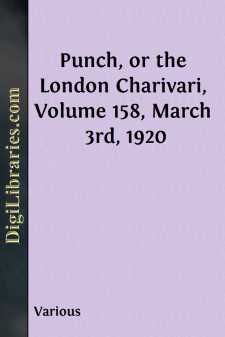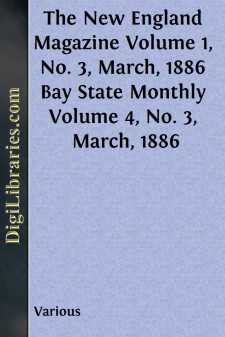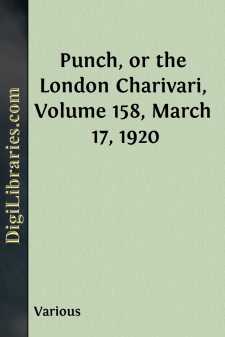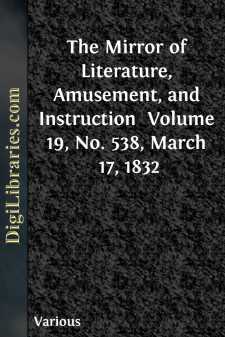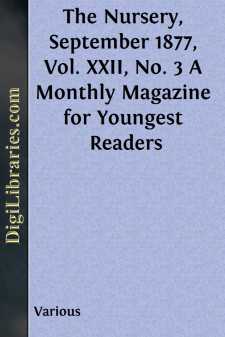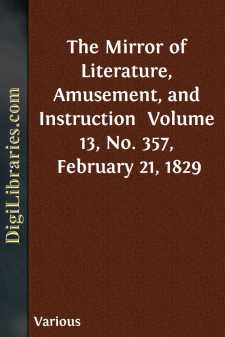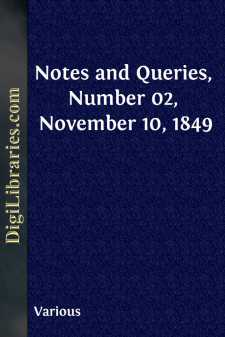Categories
- Antiques & Collectibles 13
- Architecture 36
- Art 48
- Bibles 22
- Biography & Autobiography 813
- Body, Mind & Spirit 142
- Business & Economics 28
- Children's Books 17
- Children's Fiction 14
- Computers 4
- Cooking 94
- Crafts & Hobbies 4
- Drama 346
- Education 46
- Family & Relationships 57
- Fiction 11829
- Games 19
- Gardening 17
- Health & Fitness 34
- History 1377
- House & Home 1
- Humor 147
- Juvenile Fiction 1873
- Juvenile Nonfiction 202
- Language Arts & Disciplines 88
- Law 16
- Literary Collections 686
- Literary Criticism 179
- Mathematics 13
- Medical 41
- Music 40
- Nature 179
- Non-Classifiable 1768
- Performing Arts 7
- Periodicals 1453
- Philosophy 64
- Photography 2
- Poetry 896
- Political Science 203
- Psychology 42
- Reference 154
- Religion 513
- Science 126
- Self-Help 84
- Social Science 81
- Sports & Recreation 34
- Study Aids 3
- Technology & Engineering 59
- Transportation 23
- Travel 463
- True Crime 29
Sort by:
by:
Various
AUCTION IN THE SPACIOUS TIMES. "It is Our Royal pleasure to will and declare one diamond," said the Virgin Queen, when the Keeper of the Privy Purse had arranged her hand for her. Sir Walter Raleigh, who sat on her left, was on his feet in a twinkling. "Like to like, 'twas ever thus," he murmured, bowing low to his Sovereign. "I crave leave to call two humble clubs, as becometh...
more...
by:
Various
The first glimpse of the Kennebec, on approaching it from the sea, presents to the stranger a barren and uninviting picture. Hemmed in on either side by low, rocky isles, studded with scraggy pines that have long defied old Atlantic's blasts, it must have been a dreary and disappointing sight, indeed, to the little band of voyagers who were seeking a home in the new world over two centuries ago....
more...
by:
Various
CONFESSIONS OF A DUFFER. III.—THE LITERARY DUFFER."I have worn a cloak and a Tyrolese hat, and attitudinised in the Picture-galleries."Why I am not a success in literature it is difficult for me to tell; indeed, I would give a good deal to anyone who would explain the reason. The Publishers, and Editors, and Literary Men decline to tell me why they do not want my contributions. I am sure I...
more...
by:
Various
FAIR WEAR AND TEAR. In a short time now we shall have to return this flat to its proper tenants and arrive at some assessment of the damage done to their effects. With regard to the other rooms, even the room which Richard and Priscilla condescend to use as a nursery, I shall accept the owners' estimate cheerfully enough, I think; but the case of the drawing-room furniture is different. About the...
more...
by:
Various
THE ARBALEST, OR CROSS-BOW. THE ARBALEST, OR CROSS-BOW. The Bow would appear to have been in most ancient nations the principal implement of war; and to keep alive this "mystery of murder," archery, or the art of shooting with a bow and arrow, seems to have been a favourite pastime in days of peace. In no country, however, has archery been more encouraged than in this island; wherefore the...
more...
by:
Various
INTRODUCED TO THE ATLANTIC OCEAN. OW for it, girls! Let me introduce you to the Atlantic Ocean! Mr. Ocean, these are my three cousins from Kentucky: Miss Jenny, Miss Eva, and Miss Kate Logan. They never saw you till today. This lady on my left is my sister, Miss Dora Drake, the best swimmer at Brant Rock Beach; but her you know already, also my dog Andy.""Oh! I don't want to go any...
more...
by:
Various
WARWICK CASTLE. The history of a fabric, so intimately connected with some of the most important events recorded in the chronicles of our country, as that of Warwick Castle, cannot fail to be alike interesting to the antiquary, the historian, and the man of letters. This noble edifice is also rendered the more attractive, as being one of the very few that have escaped the ravages of war, or have defied...
more...
by:
Various
ACT I. A Room tastefully filled with cheap Art-furniture. Gimcracks in an étagère; a festoon of chenille monkeys hanging from the gaselier. Japanese fans, skeletons, cotton-wool spiders, frogs, and lizards, scattered everywhere about. Drain-pipes with tall dyed grasses. A porcelain stove decorated with transferable pictures. Showily-bound books in book-case. Window. The Visitors' bell rings in...
more...
by:
Various
A FEW WORDS TO OUR FRIENDS. In our opening Address we carefully avoided any thing at all approaching to a boast of what we would, or even what we hoped to perform. We stated that "we would rather give a specimen than a description." We are now in like manner unwilling to point as exultingly, as we think we might, to the position which we have already taken. But there is a vast difference...
more...
by:
Various
MARSTON; OR, THE MEMOIRS OF A STATESMAN. PART II."Have I not in my time heard lions roar?Have I not heard the sea, puft up with wind,Rage like all angry boar chafed with sweat?Have I not heard great ordnance in the field,And heaven's artillery thunder in the skies?Have I not in the pitched battle heardLoud 'larums, neighing steeds, and trumpets clang?" SHAKSPEARE. My entertainer...
more...


